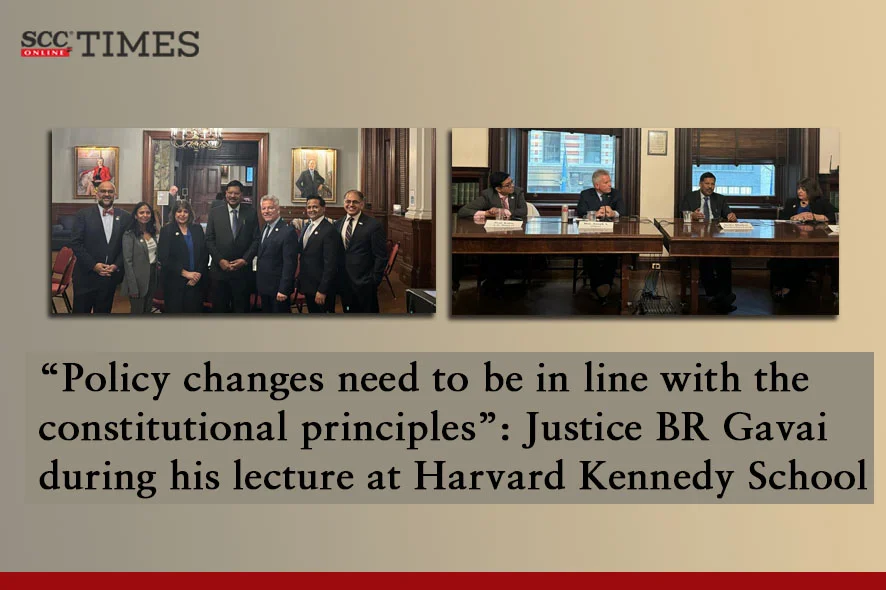Justice BR Gavai, Judge, Supreme Court of India visited the United States of America (‘USA’) between 25-03-2024 and 31-03-2024 to attend various events. Justice Gavai delivered a lecture on “How Judicial Review Shapes Policy” in the largest democracy in the world, i.e., India, at the Harvard Kennedy School.
Justice Gavai preluded that “We need to understand why the engine of judicial review is of paramount consideration for regulating legislative and executive action.” He further quoted Arthur T. Vanderbilt, former chief justice of the New Jersey Supreme Court in this regard, who said that “….it is in the courts and not in the legislature that our citizens primarily feel the keen, cutting age of the law. If they have respect for the work of the courts, their respect for the law will survive the shortcomings of every other branch of government; but if they lose respect for the work of the courts, their respect for law and order will vanish with it, to the great detriment of society.”
Justice Gavai regarded judicial review as a process which empowers the Courts to review legislative acts, administrative actions, and even constitutional amendments, which allows Constitutional Courts to declare legislative acts or amendments as ultra-vires or unconstitutional when against the peace and harmony of the Constitution.
He further explained that the power of judicial review is based on the basic principles of separation of power, being essential for a society governed by the rule of law, that every State organ has the power to act in its domain. The legislature makes laws, and the executive creates policies, implements them, and runs the administration. The judiciary applies, interprets, and decides issues under a statute or the Constitution. Coming back to the Courts, Justice Gavai clarified that Courts must review and keep a check over the actions of different organs of the State, i.e., legislature and executive, and remove any inconsistency with the ideals and provisions of the Constitution.
Justice Gavai also touched upon the power of judicial review embedded in the legal system of the USA assumed in 1803 after William Marbury v. James Madison, 5 US 137 (1803).
Getting into the depths of judicial review, Justice Gavai explained how judicial review shapes policy in an indirect manner, the answer being review of legislative action, striking off legislation, broadening the Constitutional interpretation, filling the vacuum in the Constitution and statutes, evolving new constitutional mechanisms and legal principles, judicial review of the administrative action and dialogical judicial review.
While concluding, Justice Gavai enunciated that “Judicial review not only defines constitutional limits and protects individual rights, but it also reflects changing social dynamics and thus adopts new and emerging rights, such as privacy rights, etc.” He batted for the need to keep policy changes in line with the constitutional principles. Before parting ways with the audience, Justice Gavai quoted Chief Justice Marshall, who once said: “We must never forget that it is a constitution we are expounding on. A constitution intended to endure for ages to come, and consequently, to be adapted to the various crises of human affairs.”







